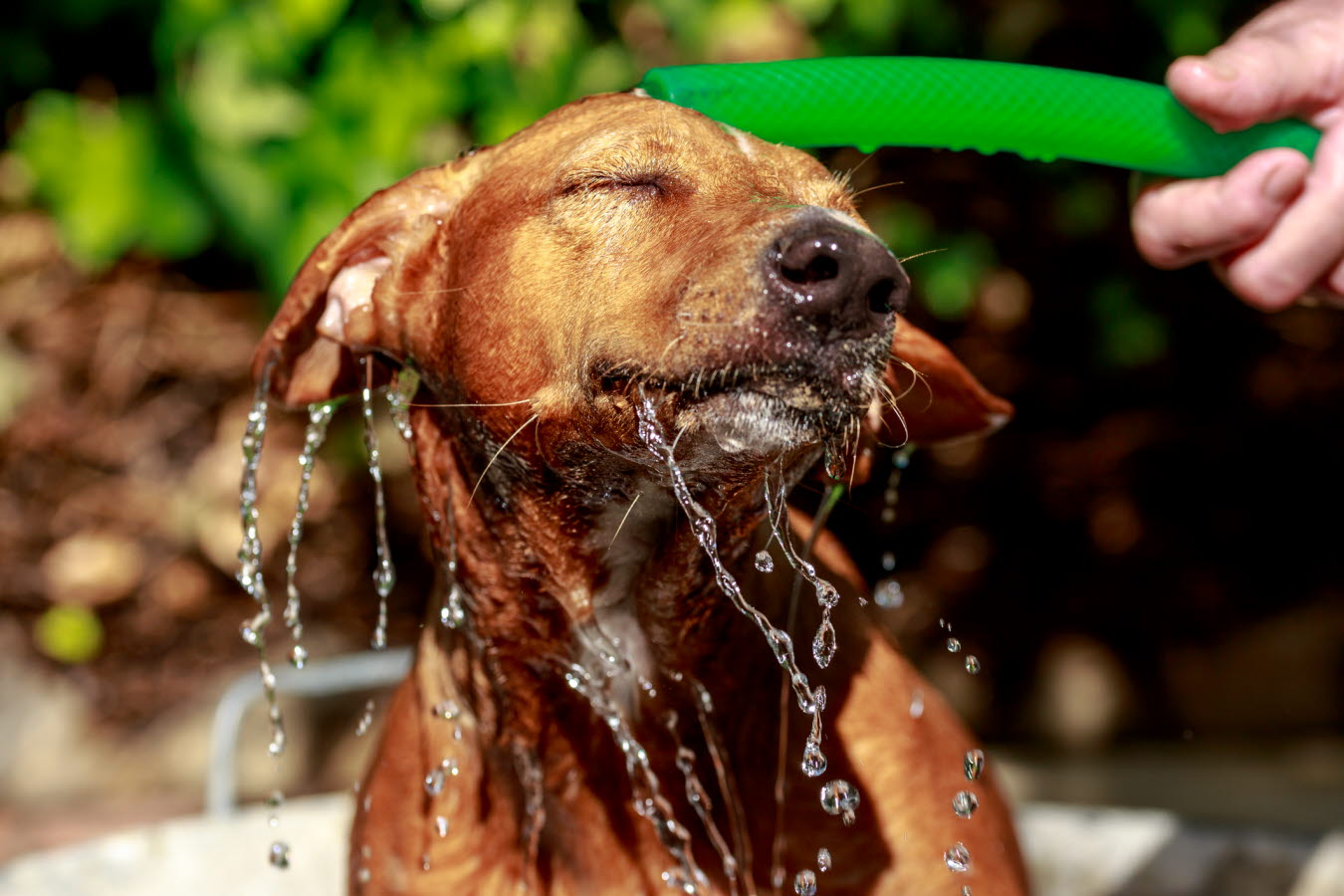
With the onset of warm weather, many of us will be getting out and about with our pets. This outdoors bonding time is great for your pet’s mental and physical health, provided you take some basic safety precautions to mitigate a few common summer-time hazards.
Heat stress in pets
Hot summer weather can place animals at risk of heat stress, particularly:
- Thick-coated dog breeds such as golden retrievers and huskies, and cat breeds such as persians
- Brachycephalic (flat-faced) dogs such as bulldogs and pugs, and cat breeds such as exotic shorthairs or persians
- Pets with pre-existing respiratory or heart conditions
- Overweight pets
Every pet should be provided with constant access to generously shaded areas and cool, fresh water throughout the day. In temperatures of 28°C or above (or in humid weather), most pets will benefit from being indoors with a fan or air-conditioning, but this is essential for the higher-risk pets listed above. Only exercise dogs during the cooler early morning and evening periods, and stop immediately if your pet seems to be panting heavily.
Lost pets
Before taking your pet on summer adventures, ensure they are properly identified with up-to-date microchip registry details (with your current address and contact numbers) and a collar labelled with your best contact number.
If you are unsure whether your pet’s microchip contact details are correct, search your pet’s microchip number online at:
- Pet Address: This should direct you to the online registry database where your pet is listed (as there are several state and national pet registries), whom you can contact directly for assistance
- If you are in NSW, and can’t find your pet’s details on Pet Address, contact the NSW Pet Registry
- If you are in South Australia and can’t find your pet’s details on Pet Address, contact Dogs and Cats Online
Spiders and snakes
In the warmer weather, insects and reptiles are more active. Whilst many owners are aware of the risk of tick paralysis (with many good tick prevention products available at your local veterinary clinic), we tend not to consider spiders.
The most common dangerous spiders in Australia are funnel-webs and red-backs. As dogs don’t appear to be as severely affected by spider venom as people do, bites can be difficult to diagnose. Potential signs of spider-bite to monitor for may include:
- Areas of pain or swelling
- Muscular cramping
- Agitation
- Weakness
- Paralysis
Snake bites are common in dogs, and they also affect cats too. The symptoms of snakebite can vary, depending on the species of snakes present in your area, but can include:
- Sudden collapse followed by apparent recovery
- Muscle tremors
- Lethargy
- Weakness or wobbliness
- Paralysis
- Difficulty breathing
- Loss of bladder/bowel control
- Abnormal bleeding e.g. from the nose
- Dark-coloured urine
If you think your pet may have been bitten by a snake or spider, take them to your local veterinarian immediately for urgent treatment.
As a rule, try to fence off obvious spider or snake nesting areas in your garden, such as woodpiles, rock-walls or areas under the house. Remove any unnecessary debris from the yard, and keep grass short.
Following these precautions can help you and your pet to enjoy a happy and safe summer.
